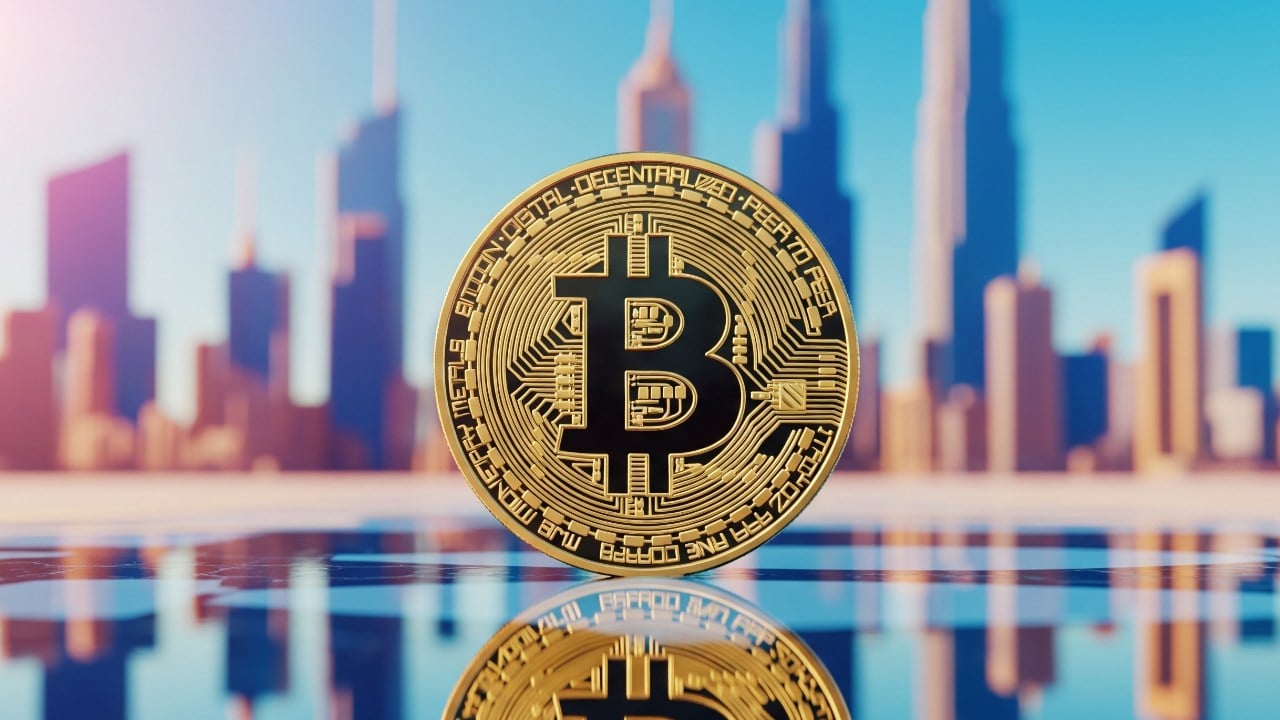The prediction that 0.1 Bitcoin (BTC) could one day surpass the value of a house in the United States is not just a bold statement—it’s a reflection of evolving perspectives on wealth, technology, and the very essence of the American Dream. Changpeng Zhao (CZ), founder of Binance, suggests that such a shift isn’t merely about price surges but about deeper economic, cultural, and technological transformations. This idea challenges traditional notions of wealth accumulation and invites a reevaluation of what it means to achieve financial success in the digital age.
Rethinking the American Dream
Historically, the American Dream has been synonymous with homeownership—a symbol of stability, success, and the pursuit of prosperity. The white picket fence and a well-kept lawn have long represented the pinnacle of financial achievement. However, CZ’s assertion—that 0.1 BTC could one day outvalue a house—hints at a potential redefinition of wealth. This shift is not just about the price of Bitcoin but about the underlying economic and technological forces reshaping society.
0.1 BTC: More Than Just a Fraction
At current prices, 0.1 BTC is worth approximately $5,000–$7,000, a fraction of the median U.S. home value, which exceeds $400,000 in 2024. For 0.1 BTC to surpass the value of a house, Bitcoin would need to reach prices in the millions—a scenario that skeptics dismiss but that is mathematically plausible due to Bitcoin’s fixed supply of 21 million coins. Owning 0.1 BTC means holding 1/1,000th of the entire supply, a significant stake in a scarce asset. With 330 million people in the U.S., it’s clear that not everyone can accumulate even this amount, making fractional Bitcoin ownership a rare and valuable asset.
Scarcity vs. Real Estate: The Supply Game
Real estate is not infinite, but its value is influenced by location, regulation, and economic factors. In contrast, Bitcoin’s scarcity is purely mathematical, unaffected by geography, physical decay, or property taxes. This inelastic supply makes Bitcoin a unique asset, with its value driven by global demand rather than local market conditions.
– Real estate: Elastic supply, influenced by local factors
– Bitcoin: Perfect inelasticity, global price mechanism, extreme divisibility
Macro Trends Fueling the Shift
Recent years have seen high inflation, soaring home prices, and widening generational wealth gaps. For many young Americans, homeownership is increasingly out of reach, while digital assets offer a borderless, cryptographically secure alternative. The growing institutional interest in Bitcoin, along with discussions about integrating it into traditional banking and mortgage infrastructure, further supports the idea that digital assets could redefine wealth.
American Households: Financial Fragility vs. Digital Hope
The Federal Reserve’s latest survey reveals that a third of Americans couldn’t cover a $400 emergency expense without going into debt. Meanwhile, Bitcoin, despite its volatility, offers an asymmetric bet: the potential for small holdings to leapfrog legacy assets. Crypto advocates argue that if even a fraction of global wealth shifts into Bitcoin, scarcity could drive prices to unprecedented heights, redefining asset values and status.
The Psychological Shift: Value, Status, and Security
Prestige: From Deeds to Digital Wallets
Traditionally, homeownership has been a tangible symbol of success. If CZ’s forecast materializes, future status symbols may shift from physical properties to digital wallets. Displaying a 0.1 BTC balance on a hardware wallet could carry more prestige than owning a suburban McMansion.
Security: Physical vs. Digital
Houses provide shelter but can be destroyed, seized, or taxed into an anchor. Bitcoin, when self-custodied, offers personal sovereignty—resistant to confiscation, portable across borders, and theoretically immune to central bank or government interference.
Accessibility and Barriers
Homeownership in the U.S. is a complex process involving bureaucracy, credit checks, and red tape. In contrast, acquiring Bitcoin requires only an internet connection and a crypto wallet, making it accessible to a broader demographic.
Economic Realities: Could Bitcoin Truly Outpace Real Estate?
Mathematical Pathways
For 0.1 BTC to outvalue a median American home, Bitcoin would need to reach at least $4,000,000 per coin. This would require either a collapse in home prices, hyperinflation eroding the dollar, or a massive influx of global wealth into digital assets. With sovereign debt rising, currency debasement fears spreading, and Bitcoin’s halvings reducing new supply, this scenario is not impossible.
Risks and Rebuttals
– Volatility: Bitcoin’s price fluctuations are well-documented. Can it offer the stability and predictability of homeownership?
– Government action: Could regulatory crackdowns, punitive taxes, or bans hinder Bitcoin’s growth?
– Network and technological risk: While Bitcoin is the pioneer, new technologies or bugs could challenge its dominance.
– Societal factors: Shelter remains a basic human need. Will digital assets ever replace physical homes?
Cultural Implications: What Happens if CZ Is Right?
Redefining Wealth
If the new measure of success is a Satoshi-rich stack, attitudes toward risk, savings, and status will shift. Gamifying savings, normalizing self-custody, and decentralizing wealth could become new rites of passage.
Shifting Priorities
Society may transition from owning land to owning digital real estate, a radical departure from physical to virtual priorities. This shift could redefine permanence, privacy, and power.
Unintended Consequences
While this shift may democratize wealth accumulation, it could also undermine physical neighborhoods, communities, and traditional forms of security. The social contract around housing, lending, and retirement may evolve into something unfamiliar.
The Future Dream: Optimism or Delusion?
The idea that 0.1 BTC could outvalue a house may seem far-fetched today, much like the concept of digital money once did. However, the acceleration of digital transformation, financial innovation, and societal frustration with the status quo is undeniable. Whether Bitcoin achieves such stratospheric value remains to be seen, but the conversation highlights a growing appetite for alternative models of prosperity and a willingness to redefine security in the digital age.
Ultimately, the American Dream may always have been less about the physical structures we own and more about the sense of security, possibility, and self-determination we can achieve. In a networked world, the next Dream may be written not in deeds and mortgages, but in code and cryptographic signatures.





